Muzaffar Ali: Galloping along mystical expression
Filmmaking and painting are intertwined for multidimensional artist Muzaffar Ali’s creative communication. He expresses his ideas through varied artforms. He believes, everything is interconnected and art is scientific by nature.
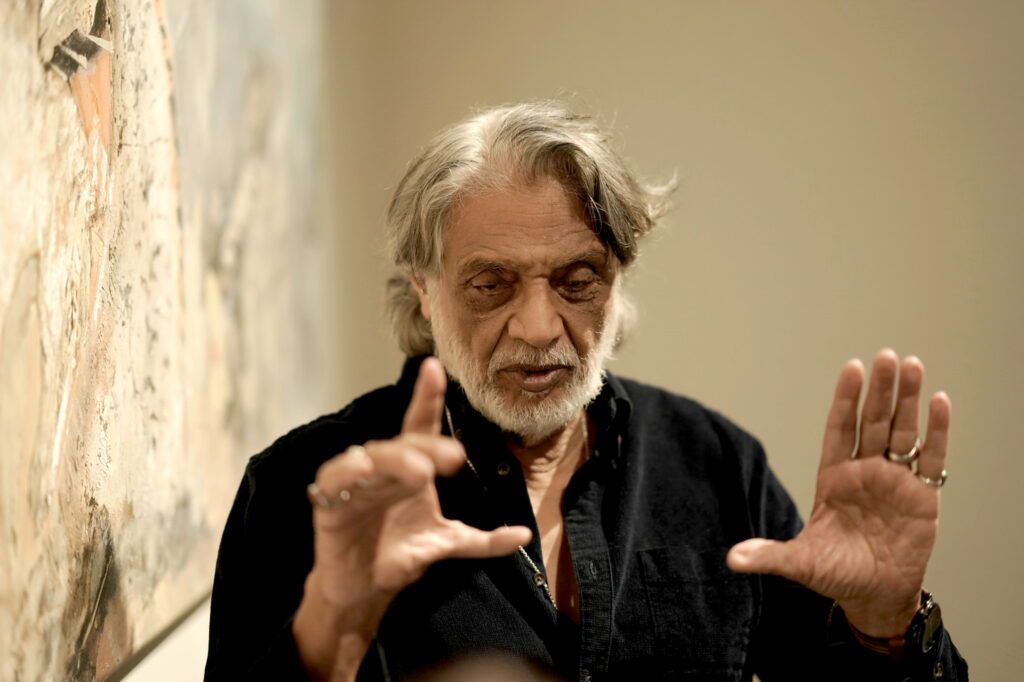
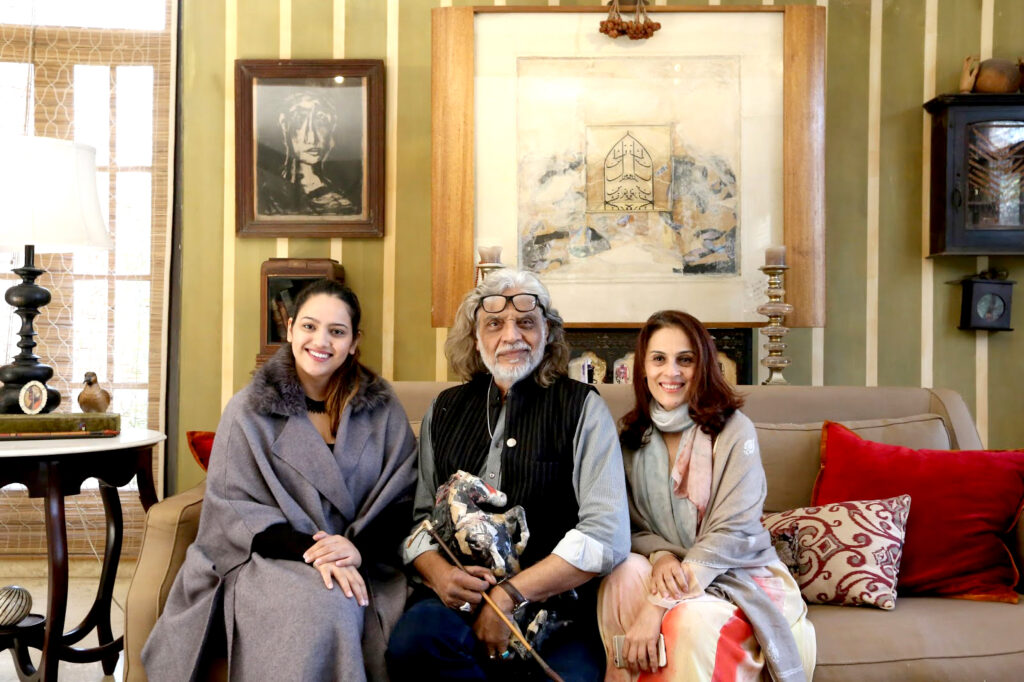
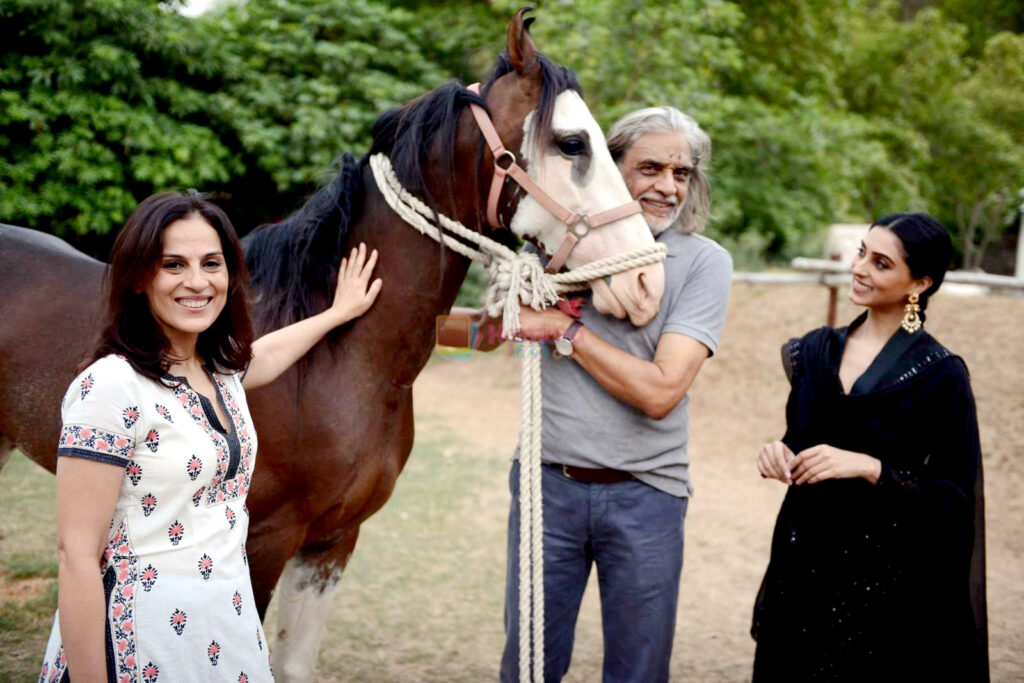
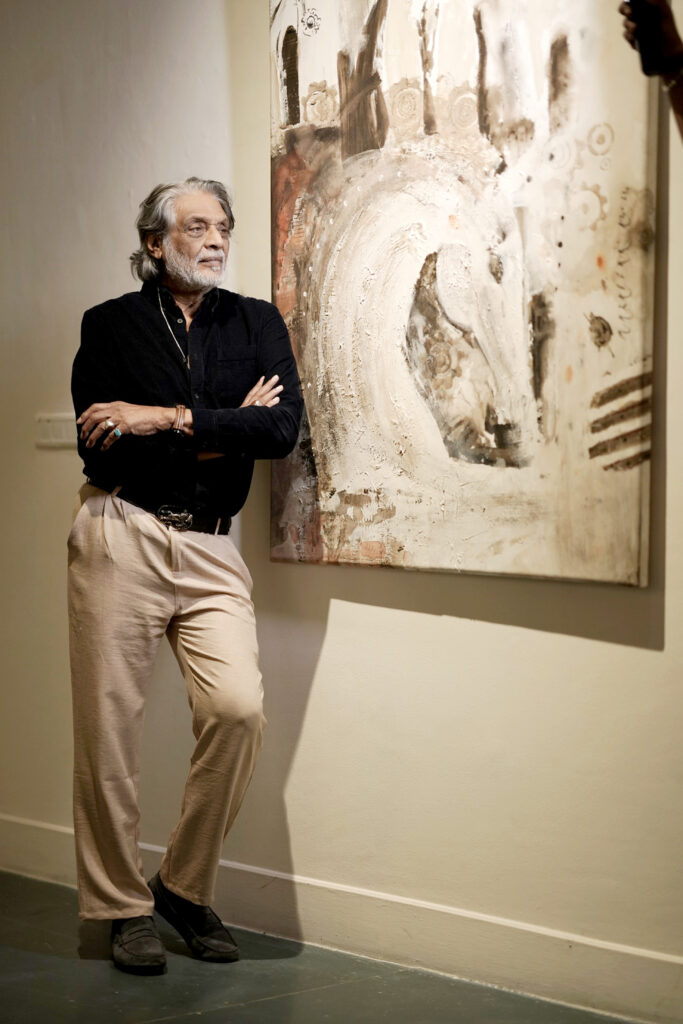
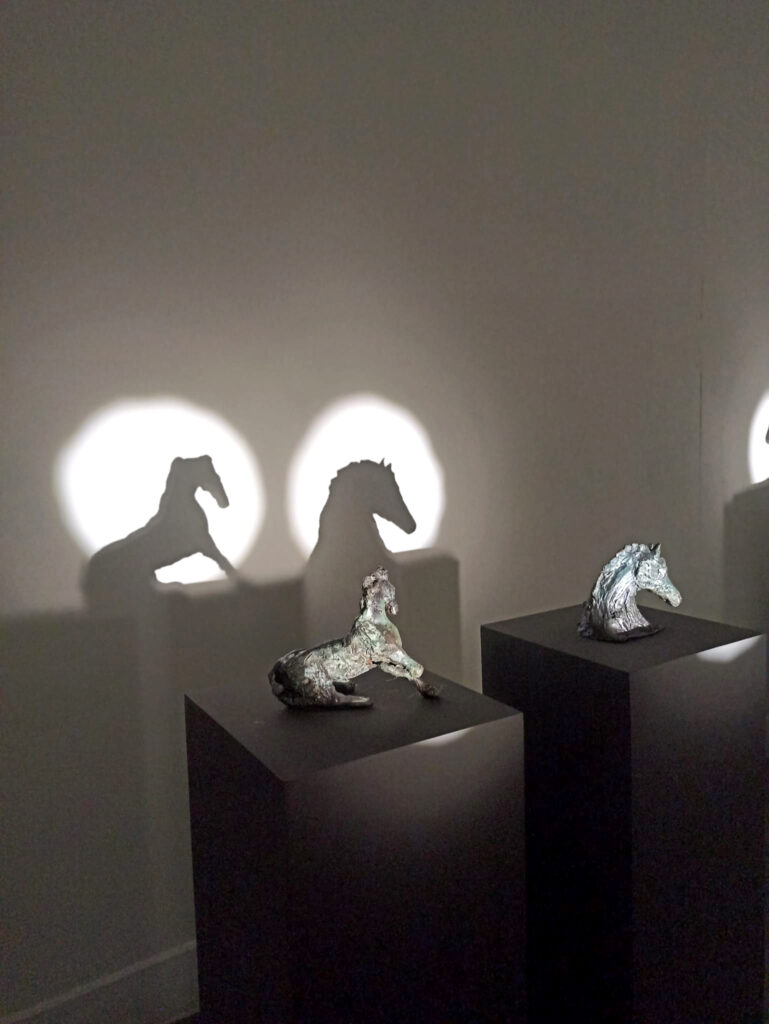
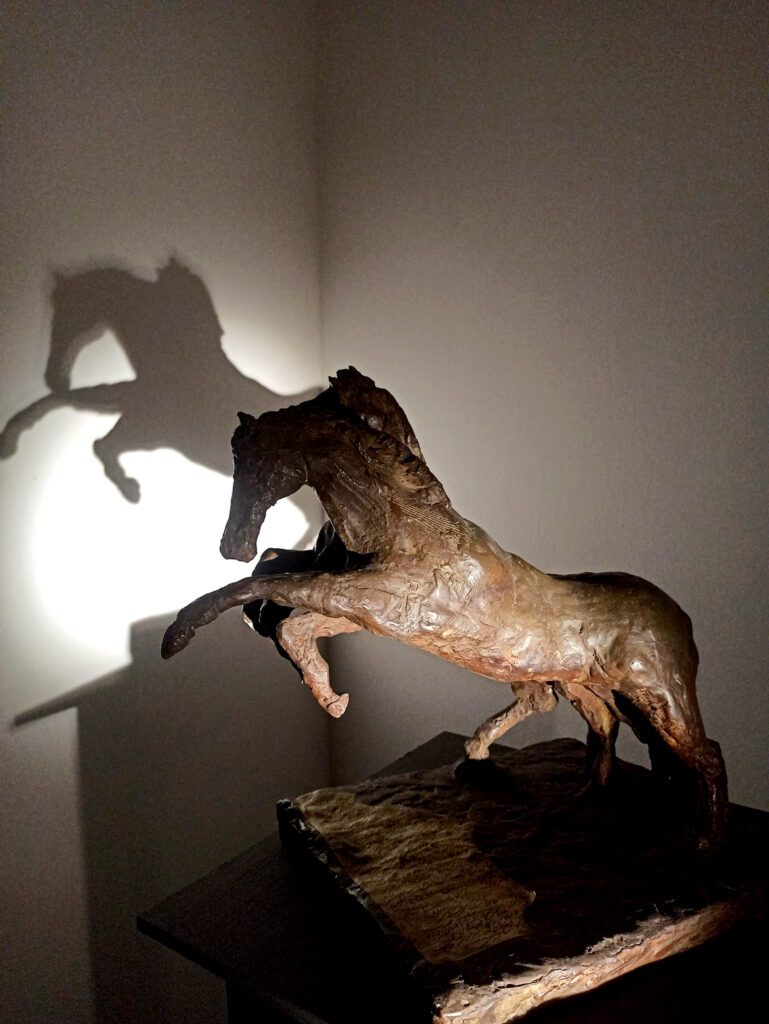
An artist evolves, possesses a free-mind and continuous inspiration to create and express through varied mediums. Recently, at Bikaner House in New Delhi, multifaceted artist Muzaffar Ali launched his solo exhibition titled “FARASNAMA: The Legend of the Horse.” This exhibition showcased his paintings, drawings, sketches, and sculptures that pay tribute to the enduring and sacred relationship between humans and majestic horses. The exhibition is curated by Uma Nair, a distinguished art historian and scholar. The term “FARASNAMA” is derived from Persian and pertains to horses and horsemanship, a subject extensively referenced in Persian literature. We also find monographs on horses composed with text written during the reign of Shah Jahan in India. The exhibition “FARASNAMA: The Legend of the Horse.” speaks about Muzaffar Ali’s love for horses as he says ‘I have a horse, I love to spend time with….”
The exhibition is structured into four distinct thematic sections. It commences with sketches of horses, followed by a series dedicated to Rumi, the artist’s preferred muse. The majority of the showcase features compositions of horses, distinguished by bold lines and intricate textures across sketches, paintings, and sculptures. The subsequent sections display portraits of Zooni, a character inspired by an unfinished film the artist created as preparation, as well as a collection of calligraphy studies.
As both an artist and an observer, I regard the celebration of horses in art as a unique and significant pursuit, particularly exemplified by the artworks of Muzaffar Ali, whose deep passion for these noble creatures is evident in each of his works. While many individuals appreciate the beauty, movement, and strength of horses, it necessitates an insightful perspective to recognize the underlying artistry that captures their grace, divinity, and mystique. For him the horse stands as a powerful symbol of prayer and serves as a blessing to those who appreciate its presence. He believes a painting of a horse possesses an intrinsic value comparable to that of the living creature itself. Its silent presence serves to purify the environment it inhabits, thereby promoting wellness, prosperity, and happiness around.
Muzaffar Ali was born in Lucknow in October 1944 and began his artistic journey in childhood while he was still in school. He was captivated by sketching, as pencil and paper became his constant companions. Encouraged by his teachers and fueled by his passion, he continued to develop his skills. While he is well-known primarily as a filmmaker, particularly for the classic movie ‘Umrao Jaan’, he embraces many other identities such as poet, activist, artist, and musician. He expresses his ideas through various creative outlets, whether in cinematic or artistic forms. His understanding of art reflects the inspiration, dreams, and memories that fuel his creativity and imagination. Understanding a horse’s spirit has been a long journey for him, by touching, feeling, loving, and feeding his horse. Through countless drawings and sketches, he explores the essence of horses, striving to capture them in various artistic mediums. He showcases his horse in varied mediums from different perspectives. In several paintings, he employed mixed-media techniques to emphasize the horse’s shape. As he touches one of his Acrylic paintings, a smile crosses his face. “I love this rock-like texture merged with the forms of the horse,” he says. “You know, I studied science and geology, and I find inspiration in rocks.”
“FARASNAMA: The Legend of the Horse.” presents a narrative that moves beyond themes of conflict and sacrifice, emphasizing the importance of enduring beauty, profound mystery, and enriching learning. He expresses his passion for creating artworks that span over four decades, encompassing a diverse range of pieces from sketches to a new collection of canvases and bronzes, all centered on his preferred subject: the horse. He innovatively aims to integrate artistry into the cinematic frame while simultaneously infusing the essence of cinema into the canvas, effectively bridging the two mediums with the use of paper and pencil. He studied science, graduating from Aligarh Muslim University with subjects Geology, Botany, and Chemistry. Having no formal training in art or film, he began his career at an advertising agency in Calcutta. As a multidimensional artist, he believes that everything is interconnected and creativity has a strong scientific foundation. His art and films inspire one another, forming an essential part of his creative journey. For him, filmmaking and painting are intertwined expressions of his thoughts and ideas. He asserts, “If I am not a painter, I can’t make films. I sketch every frame when I create a film. The frame is important, as are its movements, the way it contains the character, and how the light interacts with it. To achieve a good composition, geometry is crucial, and I find it in nature and botany. Without a scientific understanding of movement and light, one cannot be a true artist or filmmaker.” His creative mind expanded towards poetry during his graduation years which provided him with a poetic understanding of art. Muzaffar Ali possesses profound knowledge and research in the creative field, demonstrating a deep awareness of the history of Indian and European art and culture. This expertise is vividly reflected in his paintings, sketches, and collages. He articulated his keen interest in Paul Cézanne’s work, the French Post-Impressionist painter from the early 20th century.
Muzaffar Ali first exhibited his artworks in 1964, followed by a larger exhibition in Calcutta in 1968 at the Academy of Fine Arts. He employs a limited color palette featuring shades of gray and brown, charcoal, black and white, raw umber, and a hint of red that adds a mystical touch. The present exhibition ‘Farasnama: The Legend of the Horse’ marked a significant venture into new artistic territory for the artist. We encountered an array of exquisite bronze sculptures of horses, artfully displayed under dramatic lighting that enhanced their visual impact. This event also served as the inaugural presentation of his bronze works. He finds it fascinating to create sculptures with clay and then cast them in bronze. For a year, he has been experimenting with this three-dimensional medium, which brings him immense joy as an artist. He enjoys touching and shaping his beloved horses in a rhythmic presentation.
He says in his own right, “I am free like a horse”
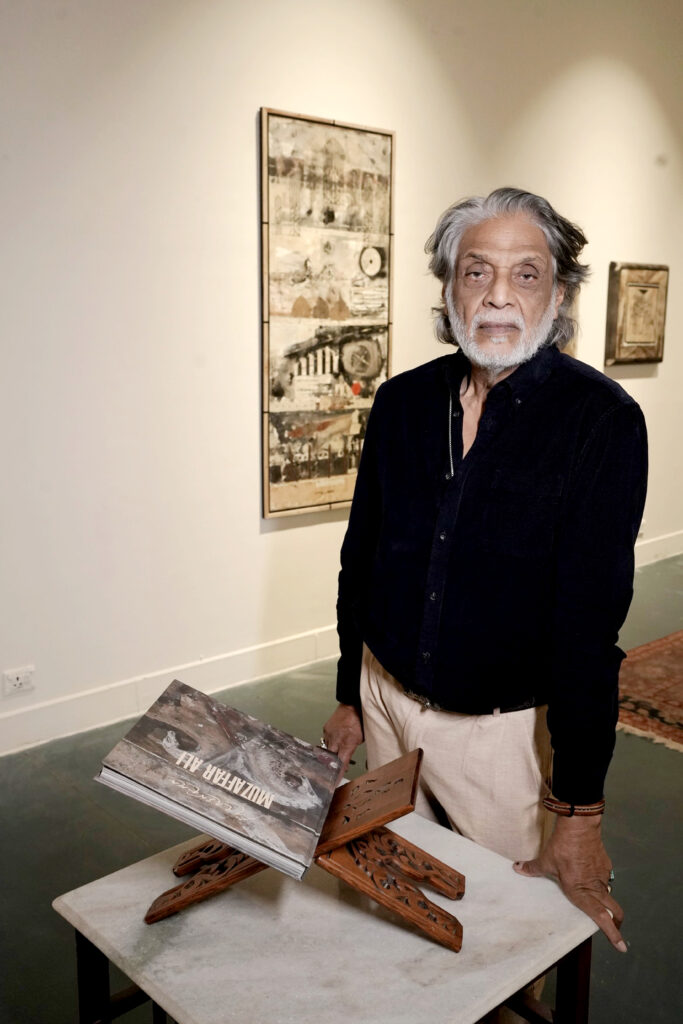
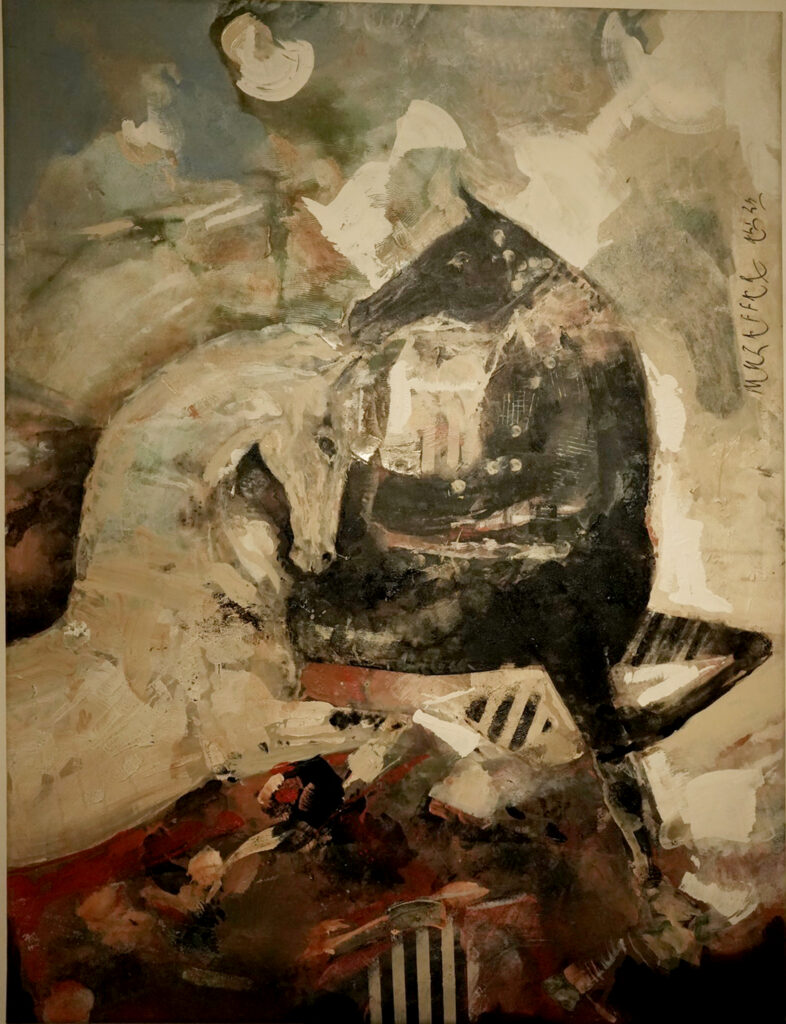


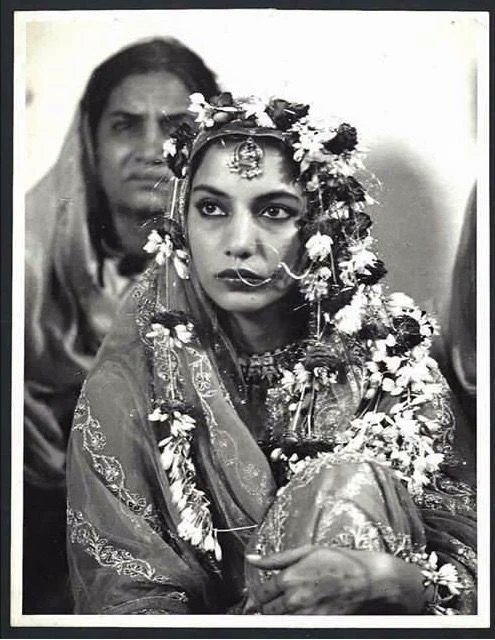
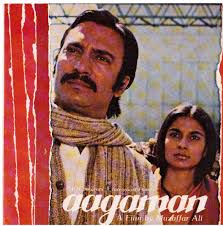


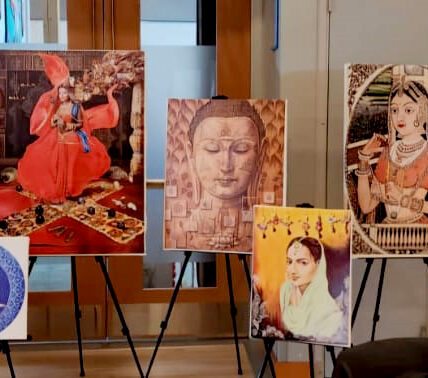
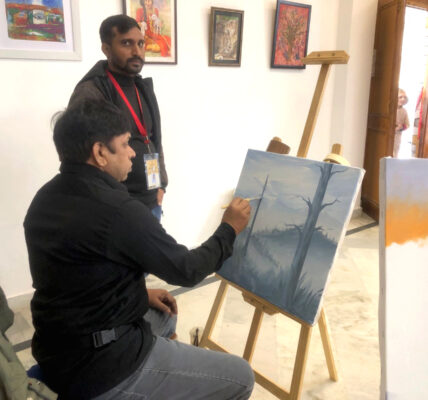
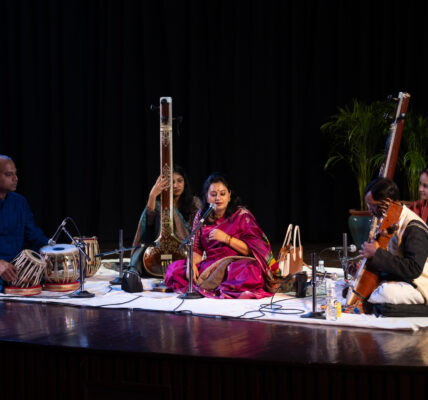

Amazing Filmmaker and designer of Lukhnowi Nawaabi couture for decades .
Always an Artist and Director of substance